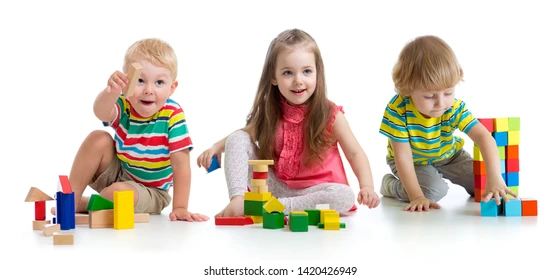
Toys, language development
Play is fun and an important part of your child’s development. It plays a key role in your child’s development of speech, language, cognitive and communication skills.
Children learn the skills they will need to be well-rounded children and adults through play.
Advertisement
Research shows that development in children’s play skills are linked to development in language and cognition.
Parents are often their first teachers and best playmates.
Children learn to engage first with people before learning how to play with toys and engage with games.
It is, therefore, important that parents encourage their children to play.
Benefi ts of playing with toys Playing with toys and games helps with the development of so many skills such as:
• Language skills: nonverbal skills, understanding of language, use of language (expressive language skills) and narrative skills.
• Observation and imitation skills
• Social interaction skills (including the ability to predict how someone might feel or react to something)
• Reasoning skills
• Imaginative skills
• Sequencing skills Toys
When choosing toys or games for a child, it is important to think about the age and what is appropriate for the child. These are a few toys or games that can help with your child’s language development:
• Balls, cars - These toys help children develop some early language skills such as turn taking, choice making, observation, social skills (back and forth interaction)
•Bubbles - Bubbles teach children language concepts such as early words (blow, pop, big, small); requesting (ready, steady, go, my turn, more); body parts (on your nose, hair, hand)
• Legos, blocks- These toys help children with language concepts (colours - red, yellow, green; shapes – circle, square, triangle; sizes – big, small), imagination (creativity and participation)
• Kitchen set for pretend play - Pretend play helps children imitate real life situations and develop their thinking skills.
They learn a lot through pretend play. These include action words (cook, cut, eat, drink, stir), categories of items (fruits, vegetables), early language concepts (hot, cold, more), sequencing (wash, chop, cook, serve)
• Oware, ludo – For school age children, these games can be considered a category of toys/activities to help with developing a child’s social interaction skills.
It involves the child taking turns with others. It also helps the child in developing their mathematics skills as they involve some counting.
Toys with batteries are usually not advised for toddlers as they offer them less opportunities for interaction, requesting and commenting.
When thinking about what toys to buy your children, you need to think about how the toys are going to help your child’s overall development, especially language.
It is always helpful when caregivers play together with their children as they model language for them.
The writer is Speech & Language Therapist/Clinical Tutor, University of Ghana.E-mail: [email protected]



